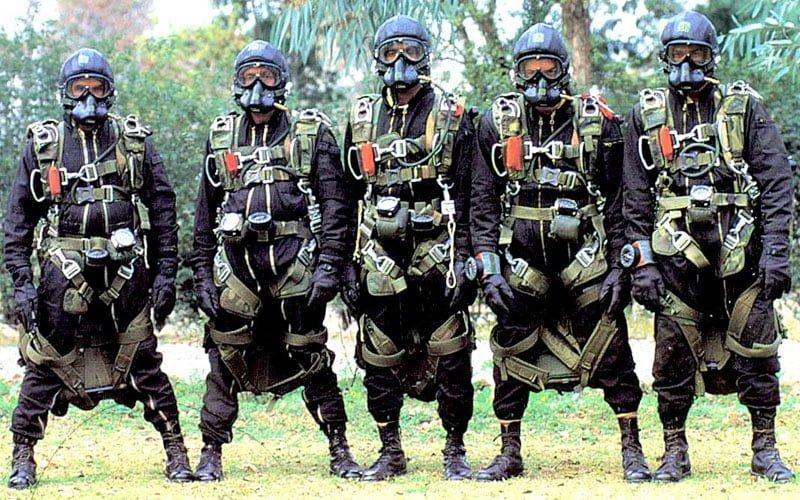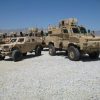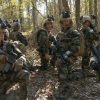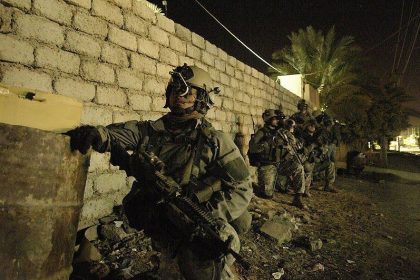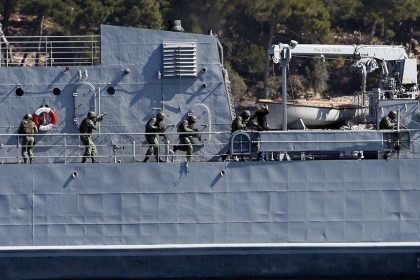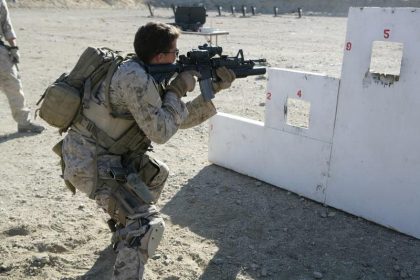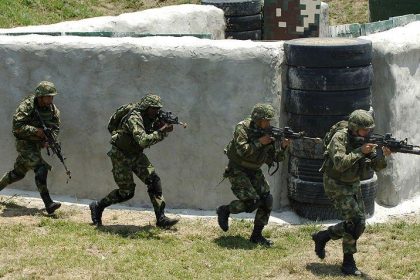Pakistan is one of the global powers and the power with the nuclear capability. Their military is very capable and well-organized. In that environment, you need to presume that such military has a special operations unit. The Pakistan Army have a highly trained, battle experienced and professional special operations unit.
The Special Services Group (SSG) is their most elite unit and it is considered as one of the best special forces units in this world. Their training, organization, and equipment are quite similar to the U.S. Army’s Special Forces and the British Army’s SAS.
The Pakistan Special Services Group (SSG) is located in Cherat. The officer in charge have a rank of a Major-General and unit is divided into ten battalions. The actual strength (number) of the unit are classified.
Selection and training of Pakistan SSG
The serving officers who are serving in Pakistan Special Services Group must have at least five years of prior military experience in Pakistan Army and they volunteer from other formations for two-year assignments with the Special Services Group. The non-commissioned officers and soldiers who are coming to Special Services Group (SSG) need to volunteer from other formations and if they pass selection course they are permanently moved to the SSG. All candidates who enlist to the Special Service Group must participate in an nine-month course at SSG Headquarters in Cherat.
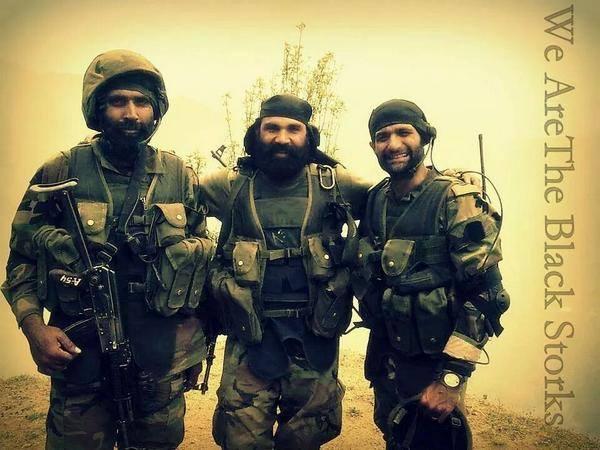
The course itself emphasizes physical conditioning, including a 36-mile march in 12 hours and a five-mile run in 40 minutes with full gear. Following the Special Service Group course, candidates must go through the basic airborne training to get their commando wings from the Airborne School. The airborne course lasts four weeks, with wings awarded after five day-jumps and three night-jumps. The Pakistan SSG recruits are also going through hand-to-hand combat training and very hard physical fitness training. The overall passing score is about 5% of candidates per course due to the very tough training course.
During the course, many candidates are selected to attend additional specialist training in SSG school. A HALO course is held at Peshawar and candidates who successfully finish the course are awarded a Skydiver tab after 25 freefall jumps.
A Mountain Warfare qualification badge is awarded after attending the course at the Mountain Warfare School in Abbottabad while Combat Diver badge is given after completing the course held by the Naval Special Services Group (SSGN) at Karachi. (Three classes of combat swimmers are recognized: 1st class to those completing an 18-mile swim, 2nd class to those finishing a 15-mile swim, and 3rd class for a 10-mile swim.)
Due to the Siachen crisis, a Snow and High Altitude Warfare School was established in the Northern Areas after splitting off from the Army School of Physical Training and Mountain Warfare in Abottabad.
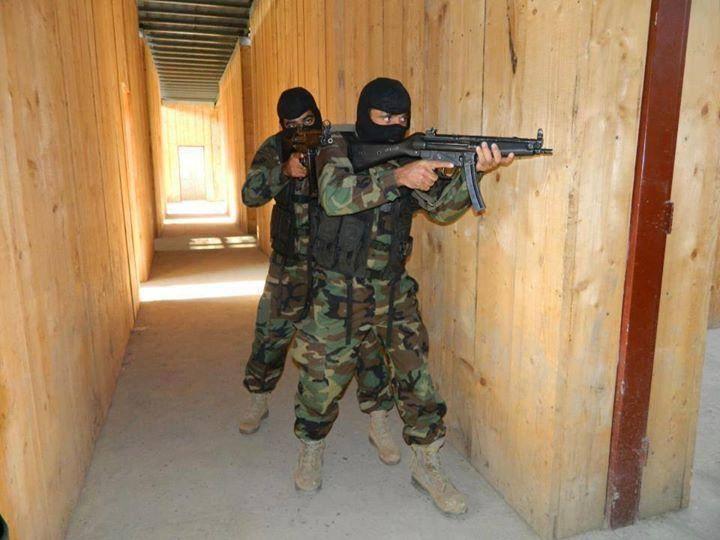
Members of Special Services Group are sent to the US for additional training on regular basis.
Interaction and cooperation with other country’s special forces
Pakistan’s Special Service Group are attending regular exercise with the Turkish Special Forces every two years. These exercises are designated as the Ataturk series. The first exercise of this type, ATATURK-I was held in December 1998 and it Turkish forces included 21 officers and 14 non-commissioned officers which were involved in the exercise.
During the 1980s and then into the 1990s, they held many similar training exercises with US Army Special Forces called Inspired Venture. These exercises were usually held during the early months of January and February with approximately 150 US soldiers. The exercises were focused on weapon familiarization and use, mountain-warfare along with tactics, raids and ambushes, and eventually airborne operations.
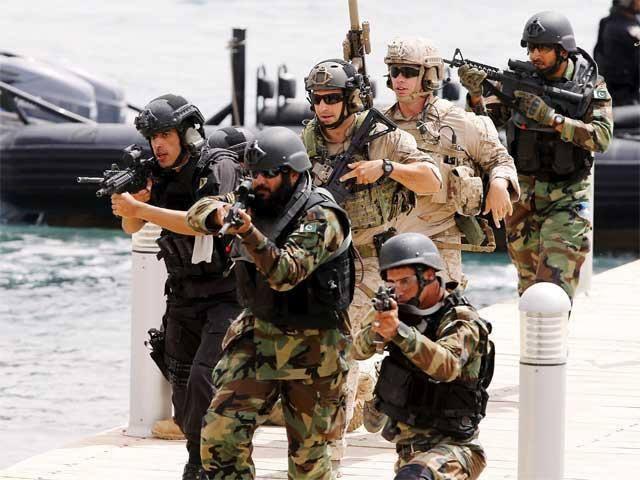
The Special Services Group is also involved in the exercises with Chinese special forces. The biggest exercise between China and Pakistan was held in 2006 when an eight-day exercise was conducted. It was named the Pakistan-China Joint Exercise Friendship-2006.
Pakistan SSG has also been reported to train with the Jordanian Royal Special Forces and Iranian Quds Force and conducts training for special forces of other Middle Eastern countries at Cherat.
Gear and weaponry
The Special Services Group (SSG) is equipped with an array of modern weaponry which includes, Steyr AUG, SIG 552 LR, HK G3, and Chinese Type-81/56 rifles, Colt M4 carbines, and FN P90 and HK-MP5 Submachine guns (many different variants).
Their Light machine gun (LMG) of choice is Rheinmetall MG3 (locally produced along with HK G3s and MP5s).
In sniper or Marksman role, their CT (Counter-Terrorism) teams are equipped with various customized versions of Barrett M82, Finnish Tikka bolt-action rifles, Steyr sniper SSG 69, POF Eye Corner shotgun, and HK PSG1 and Dragunov SVD Semi-automatic rifles.
The secondary weapons (pistols) are usually chosen between Heckler & Koch and Glock models.




